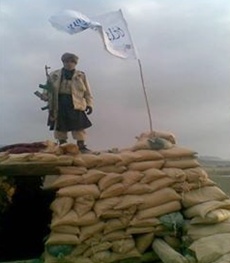China, Pakistan assume role in Afghanistan as US exits
10 Feb 2015
China, Pakistan and Afghanistan on Monday agreed to take practical steps and deepen their cooperation in security and counter-terrorism after a trilateral 'strategic dialogue' held in Kabul.
 This follows a meeting of representatives of the US, China and Afghanistan in December, in London, at which the three countries discussed ways to forge peace in Afghanistan, a senior US official said.
This follows a meeting of representatives of the US, China and Afghanistan in December, in London, at which the three countries discussed ways to forge peace in Afghanistan, a senior US official said.
The three had since met at an international meeting on Afghanistan in the United Arab Emirates last month, reports quoting one participant as saying.
However, China, too, like the US, cannot hope to secure peace in Afghanistan without the support of Pakistan and, more specifically, its Taliban elements.
Reports, meanwhile, said China, Pakistan and Afghanistan had an in-depth exchange of views on the situation in the region, issues of peace and security and trilateral practical cooperation. They resolved to make concerted efforts for maintaining peace and stability in Afghanistan.
The first round of the strategic dialogue was co-chaired by Pakistan's foreign secretary Aizaz Ahmed Chaudhry, Chinese assistant foreign minister Liu Jianchao and Afghan deputy foreign minister Hekmat Khalil Karzai.
China and Pakistan reiterated support for an Afghan-led peace and reconciliation process. Beijing and Kabul expressed their support for Islamabad to host 5th ministerial conference of the Heart of Asia-Istanbul Process in 2015.
China, wary of the US military presence, had earlier followed a hands-off policy on Afghanistan. The change in perceptions came after the previously undisclosed meeting, which came within days of a visit by the Afghan Taliban to Beijing, reports say.
China's move toward the role of mediator signals a foreign policy shift in Beijing and this could change the geopolitics of Central Asia against India.
While the US officials remained silent on the tripartite talks with China and Afghanistan, David Sedney, a former US diplomat in Beijing and Kabul and deputy assistant secretary of defense for Afghanistan, Pakistan and Central Asia from 2009 to 2013, said, ''In a certain sense, they're competing with the US for success in Afghanistan. They (China) want to prove they can do it better.''
And weeks after Afghan President Ashraf Ghani's visit to Beijing, his first official trip abroad, Beijing has pledged $327 million in economic aid to Kabul through 2017.
China's foreign ministry said Beijing wanted to play a ''constructive role'' supporting an Afghan-led peace process and Afghan officials said they welcomed a role by China.
China's Afghan initiative reflects China's international standing as well as challenge the US role as the primary underwriter of regional peace and prosperity.


















